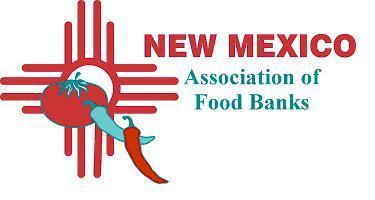 Postal carriers in Albuquerque were collecting non-perishable food items deposited near mail boxes today (Saturday, May 13), as part of Roadrunner Food Bank's spring-summer drive.
Postal carriers in Albuquerque were collecting non-perishable food items deposited near mail boxes today (Saturday, May 13), as part of Roadrunner Food Bank's spring-summer drive.I suspect the collections won't be as large as those for the Thanksgiving drive, as people tend to think less about the hungry and poor in our community during the summer months.
Unfortunately, this is the time when food banks need the donations most, as stocks on their shelves begin to dwindle.
The spring-summer food drive has taken an even greater significance this year, given the study by the New Mexico Association of Food Banks (NMAFB) released just this week.
The report, which the NMAFB called "the most comprehensive study of hunger in New Mexico ever," showed some troubling trends in our state:
-Over 60 percent of food pantries, 68 percent of soup kitchens and 54 percent of shelters reported an increase in the number of clients seeking help since 2001.
-An estimated 238,000 New Mexicans sought emergency food in 2005. This is an increase of 38 percent or 66,000 more people per year since 2001.
There are more of these dire statistics in the executive summary and the full report
The study was compiled using data collected in the spring of 2005 by the eight member food banks of the NMAFB in Albuquerque, Santa Fe, Las Cruces, Gallup, Farmington, Roswell, Hobbs and Clovis.
The report is part of the national study Hunger in America 2006 compiled by America's Second Harvest. As the Second Harvest report indicates, the problems are not confined to New Mexico. The growth in hunger is a part of a national trend.
"The results of Hunger in America 2006 should be discomforting," said the Second Harvest national study. "It is difficult to understand how people living in this land of plenty can have to make decisions between paying for food or other household necessities."
Other recent reports have found similar trends. "Even with an improving economy, overall requests for emergency food assistance increased by an average of 14 percent over the past year with 96 percent of the cities registering an increase," the United States Conference of Mayors said in study released in December 2005.
In particular, families with children requesting food assistance and emergency shelter also increased substantially over the last year, the mayors' report said. Read press release
See full report
Faith leaders are not keeping quiet about the recent trends. In an April 24 editorial entitled Hunger USA, the Jesuit-sponsored America magazine calls into question the low priority that our country's leaders are giving to the problem.
"Hunger here in the richest nation in the world? Impossible, one might think," said the editorial. "But the U.S. Conference of Mayors’ annual Hunger and Homelessness Survey makes it clear that hunger and food insecurity (not always having access to enough food to meet basic needs) not only exist, but are on the rise."
America said the mood in Congress and in President George W. Bush's administration is to slash spending on food and nutrition programs, which has contributed to the problem. "Congress should firmly resist cutting back on federal nutrition programs and focus instead on strengthening them in such a way as to eliminate hunger and guarantee food security in the United States," said the editorial.
The prospect of budget reductions prompted the leaders of five denominations (The Presbyterian Church USA, the Evangelical Lutheran Church in America, the Episcopal Church, the United Church of Christ and the United Methodist Church), to write a letter to House Budget Committee urging not only that adequate funding be maintained for nutrition programs, but that our government "eliminate the inequities in its federal budget and instead act to pass a budget that meets the moral test of 'serving the common good.'
The five Protestant leaders ended their letter, dated March 29, 2006, (during the Lenten Season) with a quote from Isaiah 58:10, If you offer your food to the hungry and satisfy the needs of the afflicted, then your light shall rise in the darkness."
"We pray that during the budget process, light will indeed rise and that Congress will not only remember the hungry and afflicted but will respond to them with justice and fairness for all," read the last line of the letter.
Because of the strong voices by the faith leaders and many other advocates for the poor, many nutrition programs like the Commodity Supplemental Food Program that the Bush administration originally proposed for cuts for fiscal year 2007 have been saved by the House Agriculture Appropriations Subcommittee, said the Food Research and Action Center (FRAC).
No comments:
Post a Comment